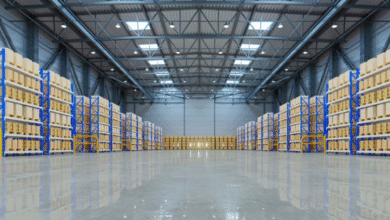Introduction: Understanding the Importance of Waste Management

As the global population rises and consumption increases, effective waste management becomes critical for ensuring a sustainable and cleaner future. From reducing pollution to conserving natural resources, the impact of waste management goes far beyond simply “throwing things away.” Whether it’s managing household waste, industrial by-products, or electronic waste, every action taken plays a role in protecting the environment, public health, and the economy.
In this ultimate guide, we will explore comprehensive waste management strategies, their benefits, and how individuals, communities, and businesses can contribute to a cleaner, greener future.
1. What is Waste Management?
Waste management is the process of collecting, transporting, processing, recycling, and disposing of waste materials in a safe and efficient manner. It includes a variety of practices aimed at minimizing the environmental and health impact of waste.
Types of Waste:
- Municipal Solid Waste (MSW): Household and office waste like paper, food scraps, packaging.
- Hazardous Waste: Chemicals, batteries, medical waste, and industrial by-products.
- Electronic Waste (E-waste): Discarded electronics such as computers, TVs, and smartphones.
- Industrial Waste: By-products from manufacturing and production facilities.
- Agricultural Waste: Organic waste from farming, such as crop residue and manure.
2. The 5 Rs of Effective Waste Management
Implementing the “5 Rs” is foundational to an eco-friendly approach to waste management. These strategies prioritize reducing waste at the source and maximizing resource recovery.
1. Refuse
Say no to unnecessary plastics, packaging, and single-use items. Avoiding waste generation in the first place is the most effective solution.
2. Reduce
Cut down on the amount of waste produced by consuming responsibly—opt for durable goods, digital receipts, and bulk purchases.
3. Reuse
Extend the life of items by repairing or repurposing them. Reuse jars, cloth bags, containers, and more instead of discarding them.
4. Recycle
Sort and recycle paper, glass, metal, and plastic. Make sure items are clean and sorted to avoid contamination.
5. Rot (Compost)
Organic waste like food scraps and yard waste can be composted to create nutrient-rich soil for gardening and agriculture.
See also: business financial reporting systems
3. Why Waste Management Matters
Environmental Impact
Improper waste disposal leads to soil, air, and water pollution. Landfills produce methane, a potent greenhouse gas, while plastics degrade into harmful microplastics.
Public Health
Unmanaged waste can breed disease-carrying pests and contribute to air and waterborne illnesses.
Economic Benefits
Recycling and composting can reduce landfill costs, create jobs, and promote sustainable industries.
Resource Conservation
Reusing and recycling reduce the need for raw material extraction, saving energy and preserving ecosystems.
4. Waste Management Strategies for Individuals
Each person can play a significant role in reducing waste. Here’s how you can take action:
Home Waste Management Tips:
- Separate waste at the source into biodegradable, recyclable, and non-recyclable.
- Start composting kitchen scraps.
- Avoid plastic bags—carry reusable totes and containers.
- Choose products with minimal packaging or opt for eco-friendly brands.
Sustainable Consumption Habits:
- Purchase second-hand items.
- Avoid fast fashion and choose sustainable clothing brands.
- Use refillable water bottles and coffee cups.
- Embrace digital products instead of physical ones (e.g., eBooks, online magazines).
5. Waste Management Strategies for Businesses
Businesses, especially those in retail, manufacturing, and hospitality, generate significant waste. Adopting strategic waste management systems helps reduce operational costs and improves brand reputation.
Key Strategies:
- Conduct a waste audit to assess sources and volume.
- Implement a recycling program for paper, packaging, and e-waste.
- Collaborate with waste management providers for scheduled pickups and proper disposal.
- Educate employees about sustainable practices and create green policies.
6. Government and Municipal Waste Management Practices
Governments play a vital role in creating the infrastructure and regulatory frameworks for waste management.
Essential Responsibilities:
- Establish landfill standards and recycling programs.
- Monitor hazardous and medical waste disposal.
- Promote public education campaigns about segregation and recycling.
- Encourage innovation in waste-to-energy and zero-waste technologies.
7. Technological Innovations in Waste Management
Technology has significantly improved how we manage waste—making it more efficient and environmentally friendly.
Prominent Innovations:
- Smart Bins: Equipped with sensors, they alert waste collectors when full.
- Waste-to-Energy (WTE): Converts non-recyclable waste into usable energy.
- AI & Robotics in Recycling: Automates sorting and improves material recovery accuracy.
- Blockchain for Waste Tracking: Ensures transparency and traceability in waste management supply chains.
8. The Role of Recycling in Waste Management
Recycling is one of the most important pillars of modern waste management. However, effective recycling requires more than just placing items in a blue bin.
How to Recycle Correctly:
- Know what can and can’t be recycled in your local area.
- Clean containers before recycling to avoid contamination.
- Flatten cardboard and paper to save space.
- Do not recycle items like greasy pizza boxes, soft plastics, or ceramics unless specified.
9. Composting: Nature’s Way of Recycling
Composting is a natural method of breaking down organic material into fertile soil. It’s an easy and impactful way to manage food and garden waste.
How to Start Composting:
- Use a bin or compost heap in your backyard.
- Add green waste (food scraps, coffee grounds) and brown waste (leaves, cardboard).
- Turn the pile regularly to aerate.
- Keep it moist but not wet.
Benefits include reducing methane emissions from landfills, improving soil health, and cutting down on chemical fertilizers.
10. Challenges in Modern Waste Management
Despite progress, significant challenges persist:
Overburdened Landfills
With limited space, landfills are reaching capacity in many areas.
Contamination in Recycling
Improper segregation ruins entire batches of recyclable materials.
E-Waste Explosion
Electronic devices are discarded at unprecedented rates, often with hazardous components.
Lack of Awareness
Public understanding of how to manage waste responsibly is still lacking in many regions.
11. Future of Waste Management: Moving Towards Zero Waste
The zero waste movement aims to redesign our systems to eliminate waste altogether.
Key Elements of Zero Waste:
- Designing products for longevity and recyclability.
- Promoting circular economies.
- Enforcing Extended Producer Responsibility (EPR) where manufacturers take back used products.
- Community-based repair and upcycling centers.
12. How Communities Can Get Involved
Community participation is crucial in implementing waste management solutions. Local groups and neighborhoods can come together to:
- Organize clean-up drives and recycling events.
- Create composting hubs or shared gardens.
- Lobby for better municipal waste policies.
- Conduct workshops on sustainable living.
Conclusion: Your Role in Creating a Cleaner Future
Waste management is not just a governmental responsibility—it’s a shared duty that includes individuals, businesses, and communities. By adopting thoughtful strategies like reducing waste, recycling properly, composting, and supporting eco-friendly policies, we can create a world that values sustainability and environmental stewardship.
As we look ahead, the goal is clear: transform our consumption habits and waste systems into models of efficiency, responsibility, and respect for the planet. By taking action today, we are investing in a healthier, cleaner future for generations to come.





